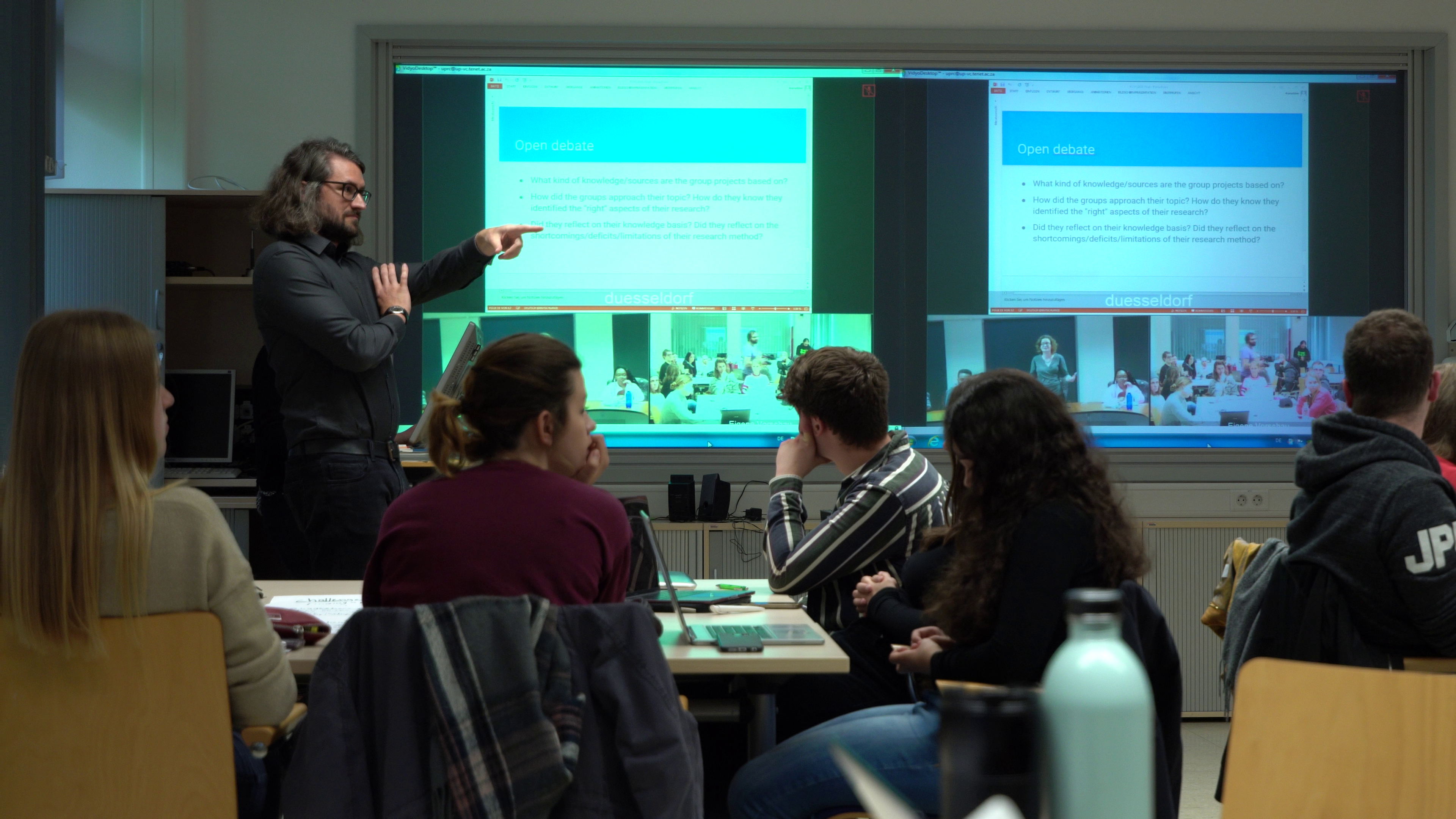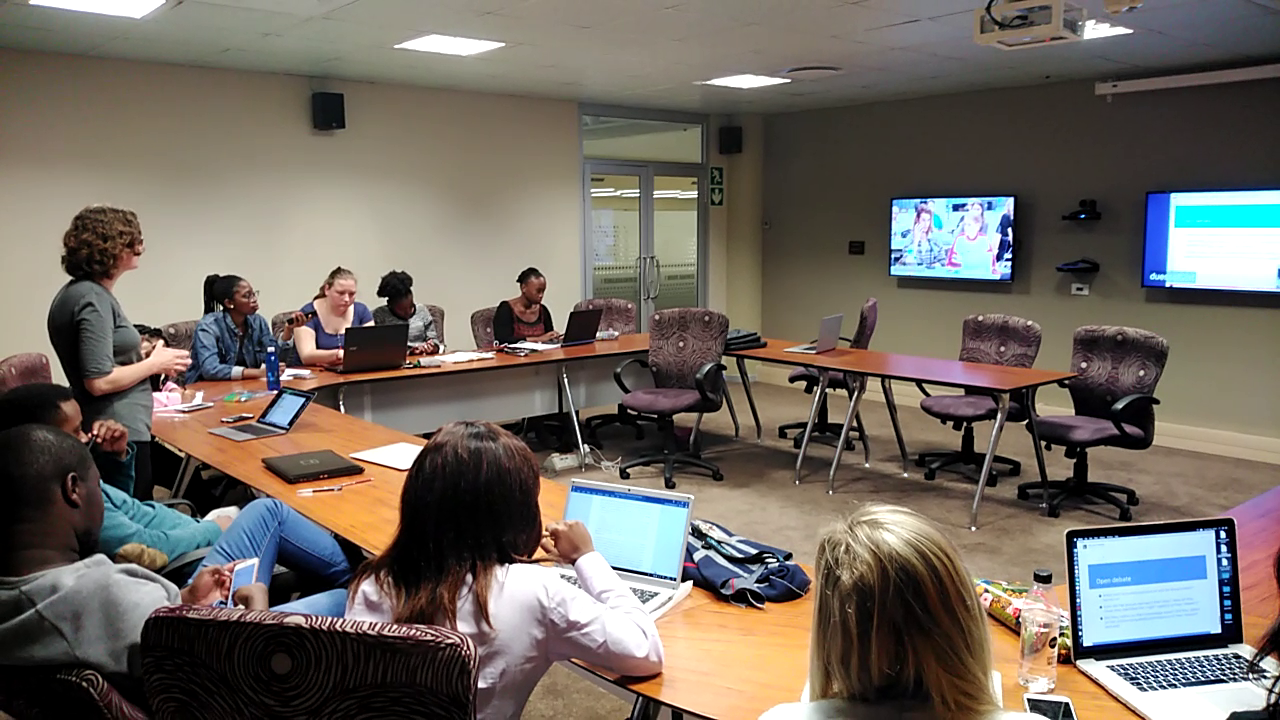In peace and conflict studies, both research and university training tend to focus on international and transnational aspects of different phenomenon. However, in teaching contexts, students rarely experience this reality beyond their own local context and disciplinary experience. The approaches to the subject are ontologically and epistemically marked and limited by the local understanding of the underlying terms, concepts, and mechanisms. Despite being a key objective, shifts of perspectives and academic exchange hardly take place in university education. In the face of a digitalized and globalized world that has entered all spheres of public and private life, this seems almost paradoxical.

To overcome these shortcomings, the Heinrich-Heine-University in Duesseldorf, the University of Pretoria and the Kyung Hee University in Seoul merged within the framework of their curricula and implement a joint seminar dealing with issues of peace and conflict studies in 2016. The key objective of this cross-site project is not only to expose students to the leading experts and their knowledge on current matters, but also to broaden the students’ perspectives on theoretical, empirical, and methodological principles. The goal is to develop comparative perspectives on the latest issues and challenges, thus learning from diverse scientific backgrounds and point of views.

The most essential part of our project is the genuine exchange with people. Therefore, we offer our students a joint seminar in which they learn together, discuss with each other, exchange their views and produce knowledge in cross-location groups.
This is also based on the in-depth exchange between the lecturers at the three different universities who prepare the didactics, methodologies and contents of the seminar.
Furthermore, we include blended learning-elements by inviting experts to share their knowledge and practical insights through expert videos or live interviews during the seminar session.
To share the videos produced by our students and several experts, and to make the didactical concepts and methodical models available, we are using Open Educational Resources (find out more here).